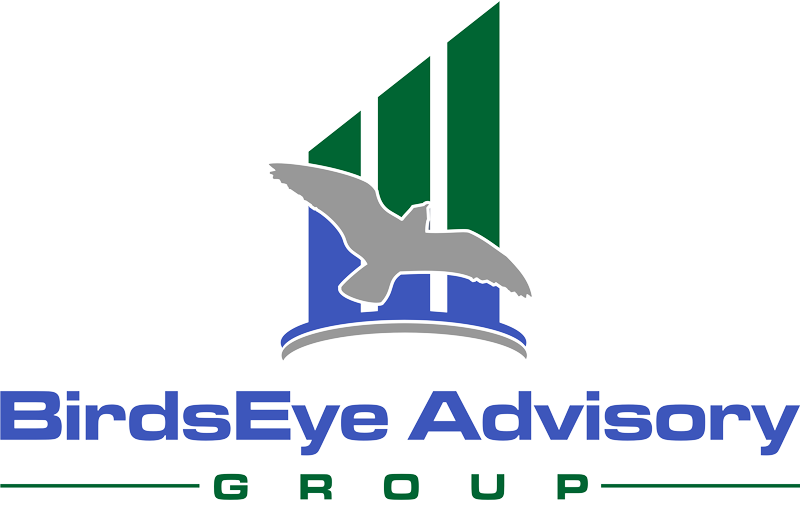One of the most common questions that I get as an M&A specialist in the pet industry is “How can I find capital to grow my business?” Growing a pet products company takes access to cash as you build your inventory and accounts receivable. Ironically, the faster you are growing, the more capital you will need since rarely do your customers pay before your supplier’s bill comes due!
While there are a wide variety of options available, including crowd-funding and factoring, this article will focus on traditional debt and equity.
Your Vendors – especially if you outsource production, finding a vendor that will give you 60-90 day terms on your orders is the least expensive form of capital. It’s not common, but I’ve heard of well-financed factories that will give generous payment terms to help their customers grow their business, particularly if you show them orders from well-known retailers. Vendor financing essentially translates to free cost of capital.
Bank Loan – with interest rates being near record lows, finding a bank to loan money to your business is a great way to build your business with a low cost of capital. The challenge is that you will likely need strong cash flow, collateral, and personal guarantees in order to qualify for the loan. Fortunately for people with good credit histories, there are more choices than ever, and most fall into one of these categories:
TERM LOAN: This is the most common general-purpose loan and is used for working capital, expansion, and acquisitions. Repayment is made monthly over a term based on the expected lifespan of the assets you are purchasing.
SBA loans fall under this category. “SBA loans are typically for a longer term, usually seven to ten years.” Explains John Wahl, Vice President at Live Oak Bank, an approved SBA lender in all 50 states. The SBA will loan up to $5 million, but the average loan is much smaller. They are easier on your cash flow, don’t require large down payments if used for an acquisition, and can be easier to obtain because they are partially guaranteed by the government.” For more details go to www.sba.gov or talk to your favorite banker.
LINE OF CREDIT: If the amount required is under $150,000, Wahl recommends a line of credit versus a term loan. They are a great solution for short-term fluctuations in cash requirements such as quarterly payroll taxes, extra inventory for the holiday season, or to take advantage of special promotions and discounts. The SBA offers an express application for lines of credit up to $150,000 and the decision is based off of your business credit score, cash flow, and household credit score.
HOME EQUITY LINE OF CREDIT (HELOC): this line of credit uses the equity accumulated in a home as collateral. It’s a good option if a traditional bank line of credit isn’t available – but only if the owner is confident that paying it back won’t be an issue because he/she is literally “betting the farm.” Per Wahl, a HELOC is the cheapest and easiest loan to get.
If you are very early stage, don’t have home equity, or not-yet-profitable, traditional bank loans are generally not an option. So how else can you find money to fuel your passion?
Equity Raises: Many entrepreneurs don’t realize that equity is the most expensive form of capital. Why? Because most investors who are willing to take the risk putting equity in an unproven or early-stage venture want a much higher rate of return then someone who lends money. Expect to pay 25% to 50% “interest” on equity money. Also, I’ve discovered that unless you need a million+ dollars, raising equity from a venture capital or private equity group is pretty much impossible. Most of APPA’s members don’t need that amount of money, so they turn to angel investors or crowdfunding (which will be discussed in another article). Angel investors are wealthy individuals who provide financial backing for small startups or entrepreneurs. This could be in the form of a “friends and family” investment, in which case they may not demand as high of a return, or a professional investor, who is investing with the goal of tripling or quadrupling (or more) his or her money over the time of the investment. While there isn’t an investment group I know of that focuses exclusively on pet industry transactions, just about every major city in the country has some type of venture capital club or Angel network. The Angel Capital Association is a collective of accredited angel investors, North America’s most prolific early-stage investment class. The association is the largest angel professional development organization in the world.
If you are a post-revenue pet consumable, I know of two venture funds that will back small-but-rapidly growing companies with investments between ~$250,000 and $1,000,000. Melitas Ventures and Selva Ventures.
So what attributes do you need to have to attract money from a professional investor? To find out, I reached out to a few individual investors in the pet space: Brock Weatherup runs a pet investment firm called Metamorphosis; Andy Katz is the former CEO of Pet Edge and runs Lab Lake Capital; and David Levy is the founder of several pet product distribution companies. Here are some key pearls of wisdom from this talented group:
CAROL: What criteria do you follow when deciding to invest in a pet company who is growing but not yet achieved strong profitability?
BROCK: All investing is based on three core principles that I have to believe:
- A) is the space they are going after BIG enough?
- B) is what they are trying to solve something that matters?
- C) is the team in a position to win, which means can they figure it out when their assumptions are wrong – which will be 100% of the time!
Then I assess what stage/volume of capital is being deployed and how proven or unproven the efforts are.
DAVID: Based on my experience, the most important criteria when deciding to invest are:
- Intellectual Property of the company
- Is there a need for this product?
- How scalable is the idea?
- Is the entrepreneur willing to listen and learn?
- Is the entrepreneur willing to let go of the “founder syndrome”? Which means that if you bring in someone who invests money and gives you free time and advice to prevent pitfalls, then you should listen.
ANDY: If a company is growing, but not yet achieving strong profitability, I would need to understand why, and how quickly the company could get to a level of stronger profitability. If the economics of the business are such that there are significant fixed costs, but very high gross margins, I am more interested than if it is just a low margin business. If the reason for the lack of profitability is clear, and there is a very clear path to fixing it, I would have more interest. One of the most important factors, of course, is whether the people leading the business are capable of getting the business to that higher level of profitability.
CAROL: What advice would you give an entrepreneur who needs to raise growth capital?
DAVID: Do it sooner than later if you have a great product. Try to find an investor who offers both intellectual capital and monetary capital. If your investor has deep experience in the pet industry and is willing to share their wisdom and insight, consider offering their shares to them at a lower valuation or pay them in cash or equity for their advice moving forward.
ANDY: I would encourage that entrepreneur to speak to as many people who are doing deals in the pet space as possible. Investment bankers, private equity (if the business is large enough), venture firms, etc. Deals that are not right for some, can be good matches for others. And, listen closely to the feedback. It could be that there are other alternatives that the entrepreneur had not considered, including interesting, non-traditional deals with strategics, etc. And, please remember that fast “no’s” are super-helpful so that no one is wasting time on either side of the conversation.
BROCK:
- Know your numbers.
- now what matters.
- Know with great clarity why an additional dollar of growth capital has a clear and definable expectation of return (if it doesn’t then you aren’t actually raising “Growth Capital”)
CAROL: What other resources can you point an entrepreneur to who needs access to capital but is not a fit for you?
ANDY: The answer to that is dependent upon the size of the business, and what they are looking to achieve. If they are large enough to be interesting to private equity, there is a large universe of potential investors. If they are less than a few million dollars in sales, the number of potential capital providers is much lower. For smaller companies, I advise the entrepreneur to network with as many people in his or hers’ inner circle as possible. Referrals are a great source of opportunities.
BROCK: There is lots and lots and lots of money available for good or great ideas. If you are getting turned away from investors that you believe fit your businesses profile (ie: don’t ask a biotech investment group to invest in your Saas b2b platform) – take a hard look at what you are pitching.
Use LinkedIn. it is an amazing resource to reach out to people to have been there, done that. Some, not all, will reply and likely help in some way. Be nice, polite and respectful and you will likely get lots of help.
DAVID: Any of the other online funding options like Circle Up, Kick Starter, IndieGoGo, Seed Invest, or family and friends.
Also, the pet industry is smaller than you think so protect your reputation. Get involved, network, be present, get to know people and make real contacts that are based on mutual success and transparency. Be honest, exude integrity and help others. This will come back to you in spades.
Carol Frank of Boulder, CO, is the founder of four companies in the pet industry and a Managing Director with BirdsEye Advisory Group, where she advises pet companies in M&A transactions and Exit Planning. She is a former CPA, has an MBA, is a Certified Mergers and Acquisitions Advisory (CM&AA) and holds Series 79 and 63 licenses. She highly values and incentivizes referrals and can be reached at birdseye@birdseyeadvisory.com.

